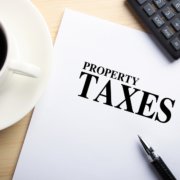Rent a room tax relief under review – how will this impact owners holiday letting their main residence?
Last Updated on October 23, 2018 by admin
 Although it may seem like a more recent phenomenon, Airbnb was founded a whole decade ago. It has had a massive impact on the holiday home and rental industries in almost 200 countries across the globe.
Although it may seem like a more recent phenomenon, Airbnb was founded a whole decade ago. It has had a massive impact on the holiday home and rental industries in almost 200 countries across the globe.
The platform now has a staggering four million listings across 65,000 cities and is valued at more than $31 billion. What it has done, not unlike Uber, is disrupted an industry norm; where those needing a car would once have traditionally hailed a cab now order an Uber. In turn, those looking for a break will often turn to AirBnB.
The speed with which the business has grown has meant that legislation and policy makers have been constantly trying, often in vein, to keep a pace with changes in order to keep a level playing field for those following the traditional holiday cottage business-model and the regulations and rates they have to pay in turn.
Rent a room tax relief under review
However, the current rent a room tax relief scheme is now under review; so what changes might we see? What will be the impact on those that currently move out of their home for short periods of time in order to list their properties on sites such as Airbnb?
Letting out a room if you’re present in the home
The original purpose of rent a room tax relief was for those living in properties to earn extra income in order to pay for the property itself, and for the person renting the room to have an affordable rent as a result of the tax relief.
For this reason, if you’re wanting to rent a room out whilst you still spend ‘some or part of the time in the property yourself’ then you’ll continue to be eligible for relief on the first £7,500 of income from that letting.
What if you’re wanting to let out the whole property?
Many of the listings on Airbnb allow budding guests the chance to rent whole properties, rather than just rooms. This is where the real proposed changes will affect the listing owners. Going forward, it is suggested that if a landlord is letting out a whole property, even if it is usually their main residence, they will no longer be able to claim rent a room tax relief.
However, they will continue to be eligible for the new Trading and Property Allowances, which allows up to £1,000 of property income to be earned tax-free. On any income above £1,000, landlords can choose to either deduct the amount of the allowance, or deduct the revenue expenses incurred in letting out the property, such as the cost of replacing carpets or the cost of meeting gas or electricity bills.
So what does that potentially mean in a snapshot?
If you rent only a room within your main residence, there is no great change. You should continue to be eligible for rent a room tax relief. However, if you rent out the whole property you’ll now be subject to the lower Trading and Property Allowance. This is designed to be used against any form of property income.
For more detailed information on these proposals please view the PDF document via this link:
Please note that this article gives only an overview of the proposed changes to Rent a Room Tax Relief. It is not intended as Tax Advice. We suggest you take advice from an accountant before making any decisions in this area. Alternatively contact HMRC for further guidance.
Boshers are specialist providers of holiday home insurance. For information on specialist insurance can help protect your holiday home business, please give us a call on 01237 429444.








Leave a Reply
Want to join the discussion?Feel free to contribute!